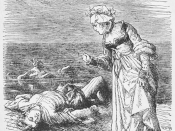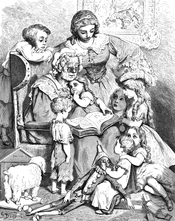Since old ages, they have been the fundamental source for information and entertainment for young children. They occupied pretty huge space in children's leisure time. People say that they teach young kindergarteners facts and let they know what the world really means. People, moreover, argue that although they, sometimes, contain horrible and unpleasant features, they still feed children with the actual life they will struggle through. You yourself were exposed to some, if not plenty, of them. If you still don't get what do I mean, then you might remember Birds and the Beast, Cinderella, Snow White, and many more.
Fairy tales, as you might have guessed it right, have been there in man's life since around the Stone Age or earlier. From its name, one can get to know that they are not true, but fake. Yes, fake. Most fairy tales talk about stories that writers and children storytellers have made up themselves.
The past piece of information may seem ordinal and known to you as an adult. However, do children know that? Getting more precisely, do little children differentiate between basic real things and unreal ones? Definitely, they don't. Taking the extreme conservative position, all, or most, fairy tales are the earliest destroying source to which children expose. In addition, fairy tales impede imagination, instill fear and scare in children's lives, and support the gender inequality.
First of all, many high intellectuals reveal that fairy tales should be stopped as they immerse the state of rear and terror inside children. In 1903, A German-language educator published a Dutch book entitled, Practice Guidance for the Education at Home. Dr. Karl Oppel was totally opposing the idea of fairy tales and he declared that in his famous anti-fake tales book. The first argument he made was that fairy tales "arrest...

